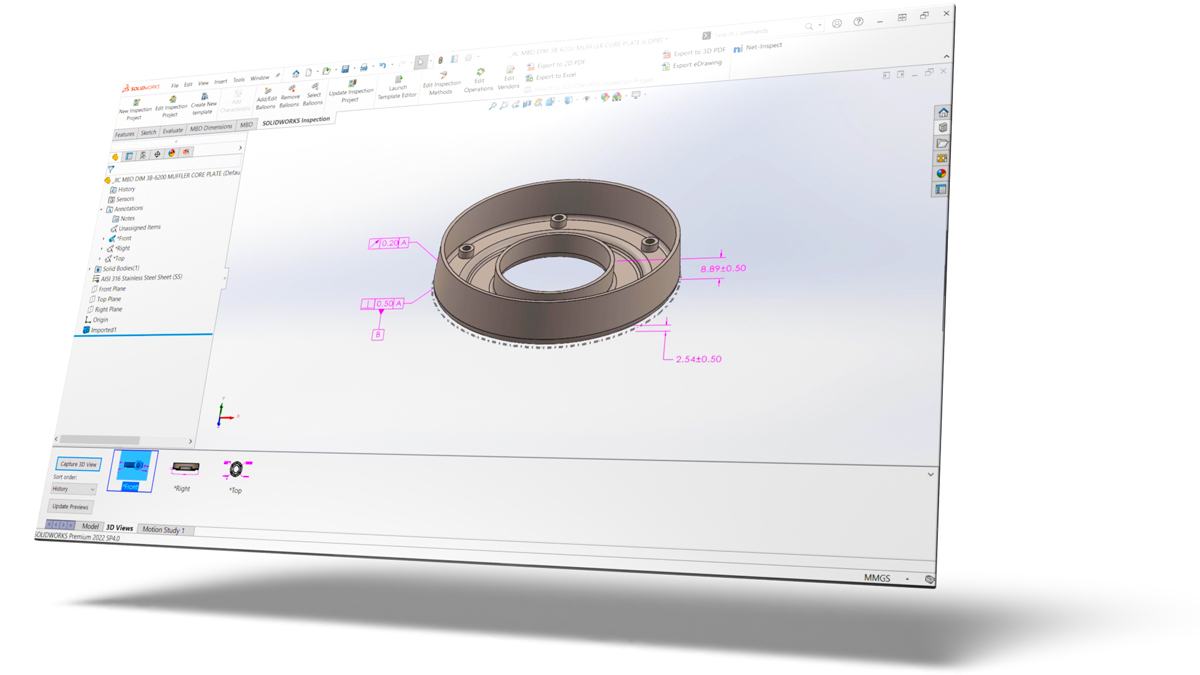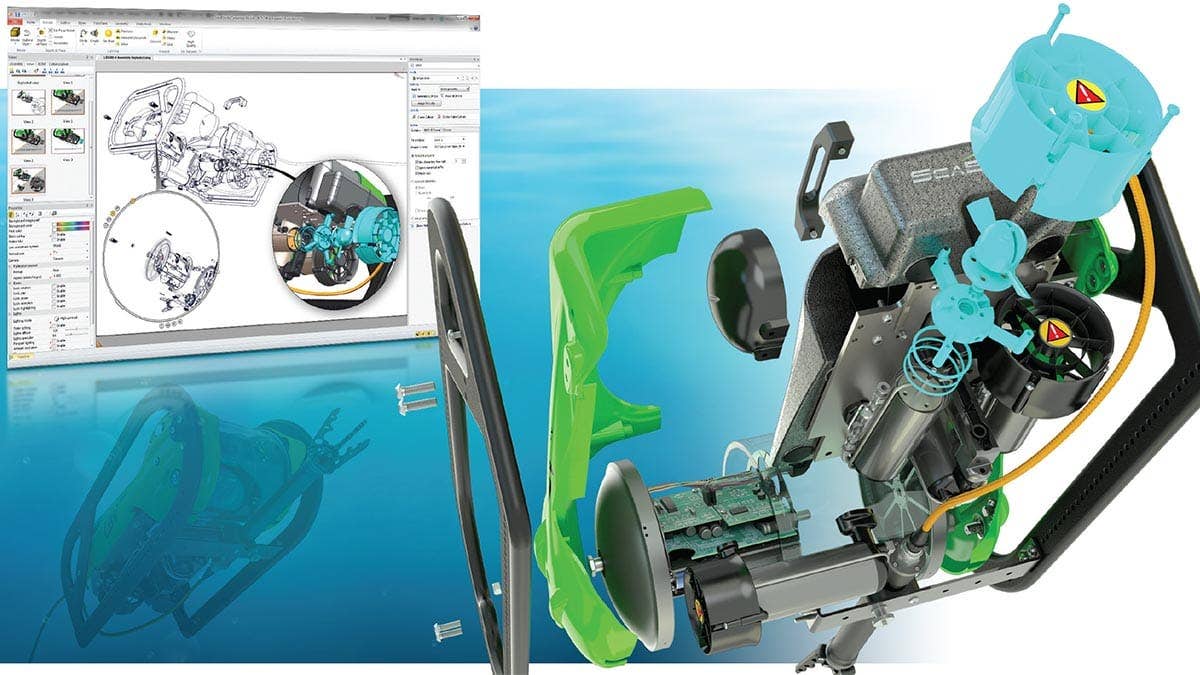SOLIDWORKS MBD
Get Pricing Sent to You Today
While you are waiting, check out our Resource Center or read our Blog!

Communicate Product and Manufacturing Information in 3D
Engineering drawings have always been the go-to for product manufacturing information. They often still are, but if you have a digital 3D companion, you can communicate more effectively downstream and reduce errors and frustrating back-and-forth.
Whether you want to go completely paperless and drawingless, or you simply want to provide more detailed manufacturing information, SOLIDWORKS MBD (Model Based Definition) is an effective tool to provide all your information the first time. The software uses the MBD Dimensions (formerly DimXpert) PMI annotations from SOLIDWORKS and organizes them to specific planes that can be toggled on and off, cleaning up the model and providing information on demand. These information-packed 3D models can then be exported as STEP 242, 3D PDF, or eDrawings files.

Key Features & Benefits
Define 3D Annotations
Organize 3D Annotations
Publish 3D Data with Annotations and Views
Customize 3D PDF templates, control accuracies and sizes, publish BOM tables and notes, attach files, and create STEP 242 files with software-readable annotations.
Minimize Scrap and Rework
Eliminate Service Costs and Time-to-Market Delays
Caztek & Inspire Medical Come Together
When Inspire Medical needed help with their sleep apnea device, they turned to Caztek Engineering. Having expertise in medical designs and complicated assemblies, the team was able to move through the design process efficiently, taking advantage of SOLIDWORKS functionality.
Impressive renderings, critical documentation and design control capabilities helped create a final model that impacts lives and gives their work meaning.
Tech Communication Resources

Create Better Documentation, Faster
Watch Video
Turn Your CAD Data Into Something Amazing
Watch Video
Getting Started With SOLIDWORKS Visualize
Watch Webinar
Success Story: Caztek & Inspire Medical
Watch VideoFrequently Asked Questions
You do not need MBD to do that. SOLIDWORKS comes with a feature called MBD Dimensions (formerly DimXpert) and allows full dimensional definition straight on the 3D design. The MBD add-in enables you to organize that information using model views and publish as STEP 242, eDrawings, and 3D PDF files using built-in PDF templates. MBD organizes the annotations and packages it up so it can be used downstream.
To be honest, probably not. MBD is a powerful 3D dimensioning and annotation tool but doesn’t always allow for all needed 2D technical drawing information to be packed into the 3D model. For simple, single part drawings it is very possible to replace 2D drawings entirely, but in most cases it’s a companion file to eliminate drawing misinterpretation.
Services & Customer Benefits
Technical Support
Our technical support team is comprised of mechanical engineers, electrical engineers, and computing specialists who provide best-in-class on-call support and Ask-an-Expert sessions when you need it the most.
Unmatched Training
We are the largest SOLIDWORKS training provider in the world, offering both online and on-demand training so your team knows how to get the most out of SOLIDWORKS.
Professional Services
Subscription Support
Whether you are looking for on-demand SolidProfessor training, access to the latest software releases, exclusive resources and offers, or just need expert support, we have a subscription option for you.
